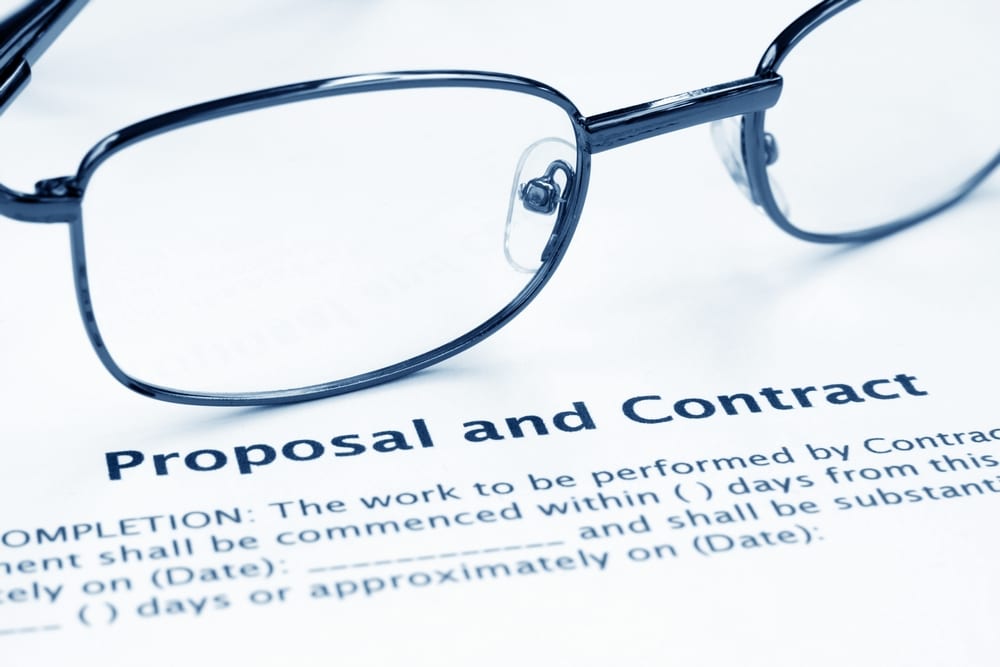Picture this. You’ve pitched for a really big contract. You and your team have spent hours on your proposal documentation, coming up with a winning combination of words. You’ve fulfilled all of the organisation’s requirements down to the last dotted i and crossed t.
But you don’t get the contract.
You scratch your head and wonder why. You don’t feel there’s anything else you could have done. But there is one thing. Did you check for typos?
Think about it. If the contract goes down to the wire between you and another company, the organisation issuing the contract will be going through your documentation with a fine tooth comb. If a few typos have crept into your documents, and the other company’s document is typo free, that could be enough for your competitor to clinch the deal.
Why Editing is Important
Editing could be the difference between winning and losing business. People think that editing belongs to the world of books, but any document where you are displaying your wares to the world needs to be edited with care, whether it’s a thesis, a CV, a blog, a presentation.
A well-edited document showcases your professionalism and attention to detail. It plants the idea in the reader’s mind that this is a person (or a company) who’s serious about their work, and who will deliver their work to the highest standards. Editing also helps you communicate with your customers, because it removes muddled or long winded wording, so your message is clear and easy for your audience to absorb.
Editing for Length
Cutting content down to size is the biggest challenge many people face. It’s because they feel a compulsive need to keep elaborating on the point they want to make. Trust me, you don’t need as many words as you think. I would always recommend letting the words flow in the first draft of a document, even a tender document, where the criteria are quite rigid. But when you’re finished doing that, it’s time to be ruthless. Get rid of anything that does not tie in with your core message. This will ensure your message shines through, loud and clear.
When you’ve done that, read your document aloud. You’ll soon spot clunky or long-winded sentences that you can trim down. When you change one sentence, all the text around it has to be adjusted too, so it’s an efficient way of reducing your word count.
Fleshing Out Text
A less common but more challenging problem is writing too lean, not elaborating enough on the points you want to make. The reason why it’s a challenge is because if there isn’t any text there to edit, you have to write text from scratch. Some people are naturally concise, but they may fear being long winded to such an extent that they go too far in the opposite direction.
Take a step back and do some more brainstorming to define your core message and decide on the action you will take to deliver on that message. Then add those points to your text. If you’ve already made notes, plunder them to bulk out your text.
Editing the Fine Points
Once you’ve done the major edits, it’s time to fine tune the document, to make sure it reads as well as possible.
Reading out loud has a dual purpose, because it helps you to spot repeated words. We all repeat ourselves when we’re writing. It’s part of the process as we work out what we want to say. Getting rid of repetitions also reduces your word count.
If you’ve edited as much as possible, but still feel your content lacks lustre, you could be over-relying on what I call weak words. These are words which are so overused that all their meaning has been worn away. Watch out for culprits like do, thing, have, get and nice. They can all be replaced. Also, watch out for adverbs and adjectives. They add unnecessary padding to a document. Weed out as many of them as you can.
The Final Check
By now, you’ll be a little snowblind from doing so much reading. To break your connection to the material and gain some perspective, start at the end and read the last sentence, then the sentence before that and so on. This final check will help you to spot those rogue typos that would otherwise escape.
What’s your biggest challenge when you’re editing your documents? Do you struggle with spelling or sentence structure? Do you find it hard to cut down the length? I’d love you to comment and share your thoughts.
Did you like this article?

- Please share it with your network, we’d really appreciate it!
- Would you like to write for Tweak Your Biz? Or sign up for our RSS?
- An outstanding title can increase tweets, Facebook Likes, and visitor traffic by 50% or more. Generate great titles for your articles and blog posts with the Tweak Your Biz Title Generator.
Connect with Tweak Your Biz on: 


mages: ”Proposal and contract/Shutterstock.com“


